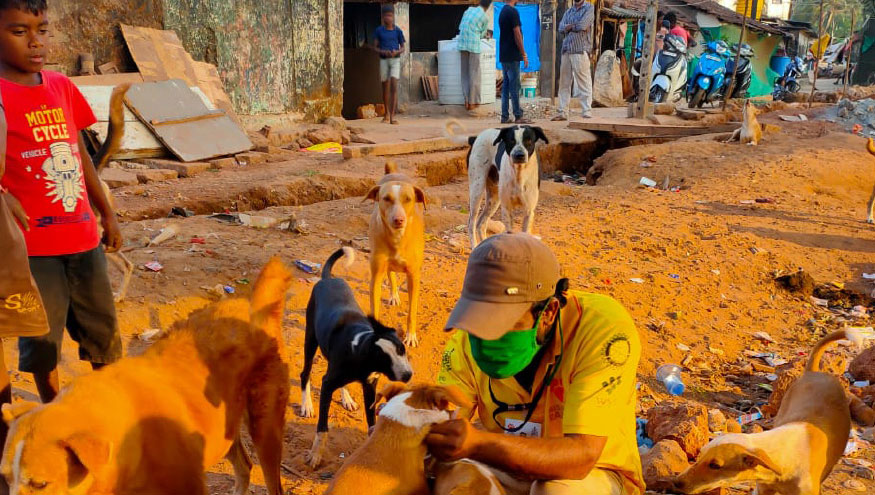26 April 2022
Building the partnership
Since September 2017, Goa State in India has reported no human deaths from rabies with a 10-fold reduction in canine rabies. Goa has also been declared a ‘rabies controlled area’ by Goa’s Department of Animal Husbandry and Veterinary Services; the first geographic zone to earn controlled status of any zoonotic disease.
Operational, epidemiological, and administrative lessons learnt in Goa are now being applied in rabies control initiatives in other states in India.
Goa’s rabies program is formally led and funded by the State Government, working in close partnership with Mission Rabies, an international charity that has been working in rabies endemic areas of Asia and Africa since 2013. Achieving ‘rabies controlled’ status took around 8 years, starting with a small-scale pilot initiative by Mission Rabies to vaccinate 5,000 dogs, growing to a state-wide programme launched in 2015, with the goal of vaccinating up to 100,000 dogs annually.

Photo credit: ©Mission Rabies
A game-changing tool
High vaccine coverage of Goa’s free-roaming dog population would be a key challenge and a phone app proved to be a game-changing operational tool. The system, called the WVS App, made it possible for the vaccination campaign manager to oversee 16 vaccination teams working in distant parts of the state, monitor vaccination rates in real time, and direct them to geographic areas with low rabies vaccination coverage. In 2021 an average of 6,100 vaccinations were carried out each month in an efficient and sustainable way.
Further measures to improve surveillance and detection of rabies cases were the creation of a ‘Goa Rabies Hotline’ to report suspected cases, linked to an integrated investigation process, bringing together veterinary and human health professionals. Investment in state laboratory capacity for rabies diagnosis in 2016 provided robust baseline data through which the decline in canine rabies incidence from 2017 to the present day has been monitored. At the time of writing, 8 of Goa’s 12 administrative regions have been free of canine rabies since 2018.
Maintaining rabies free status
Current strategies are focussed on maintaining rabies free areas, boosting community rabies education programmes and preventing reintroduction of the virus from bordering areas. Feasibility studies are showing that oral rabies vaccines could further reduce operational costs and increase vaccination coverage in the free-roaming dog population.
The sustained success of rabies control in Goa, now entering a fifth year with zero human rabies deaths, is due to the commitment shown by the Government of Goa to prioritise canine rabies control and the vision to form lasting partnerships supporting the development of new approaches.
The declaration of Goa as a ‘rabies controlled area’, by the Government of Goa makes reporting of rabies in animals mandatory, enforces the compulsory immunization of dogs against rabies, provides additional measures on the importation of pet animals and gives state veterinarians the authority to enforce control measures. Combined with the inclusion of rabies education as part of the curriculum for all school children, the example created in Goa demonstrates to other states and countries in the region that rabies control is achievable with strong political leadership and expert technical support.